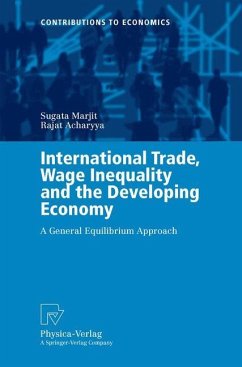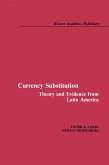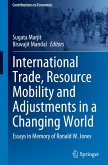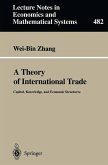This book deals with the impact that international trade is likely to have on the skilled-unskilled wage gap in a typical developing economy. This is the first theoretical monograph on this particular issue which has already generated substantial debate and voluminous work for the developed countries. A unique feature of this work is that it tries to explain the possibility of rising inequality across trading nations and looks at the segmented labour markets of the poor economies. It makes convincing arguments that the standard general equilibrium models, the main workhorse of trade theory, can be given a creative facelift to address a number of critical and emerging issues in the area of trade and development.
Hinweis: Dieser Artikel kann nur an eine deutsche Lieferadresse ausgeliefert werden.
Hinweis: Dieser Artikel kann nur an eine deutsche Lieferadresse ausgeliefert werden.
From the reviews:
"The book ... explores the analytical borders of the standard trade model and shows how various modifications, motivated by a developing country (DC) perspective, can indeed reconcile the theory with the presumed facts. ... I find the book by Marjit and Acharyya to be a very helpful contribution to the literature ... . Apart from its obvious usefulness as a text for advanced courses on trade theory ... the book may also serve as a useful source of inspiration for researchers ... ." (Erich Gundlach, Review of World Economics, Vol. 140 (2), 2004)
"The book ... explores the analytical borders of the standard trade model and shows how various modifications, motivated by a developing country (DC) perspective, can indeed reconcile the theory with the presumed facts. ... I find the book by Marjit and Acharyya to be a very helpful contribution to the literature ... . Apart from its obvious usefulness as a text for advanced courses on trade theory ... the book may also serve as a useful source of inspiration for researchers ... ." (Erich Gundlach, Review of World Economics, Vol. 140 (2), 2004)








